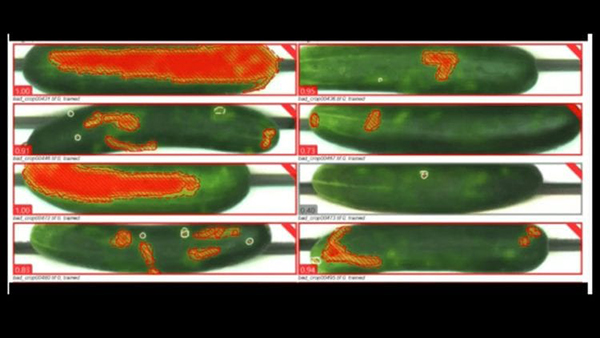Deep Learning and Analytics Tools

Deep Learning and Analytics Tools
Hybrid machine vision solutions merge analytical and deep learning tools
Deep learning has become an important and valuable tool in the execution of industrial machine vision for inspection applications including tasks such as defect detection and assembly verification. As a technology, deep learning is part of the broader machine learning field in the science of artificial intelligence (AI). Deep learning specifically is a form of machine learning that uses “deep” (multi-layered) convolutional neural networks to allow computers to learn essentially “by example”. The technique has been shown to excel in a variety of tasks such as large data set analysis, language processing, sound recognition, and in the context of industrial computer vision, image recognition.
When specifying the proper approach for any project keep in mind that deep learning is not a solution for all machine vision applications. It does well in situations where subjective decisions need to be made like a human inspector. In these cases, a good rule of thumb is that if a human could easily and quickly be trained on how to differentiate good from bad parts visually, deep learning likely could be also. It is not useful in applications that require confirmation of metrics, as in measurement or location.
While deep learning in certain use cases can be a stand-alone solution, many applications will benefit from a hybrid implementation of both analytical and deep learning tools. Here are some key considerations for practical implementation of the technology with a hybrid approach.
Image formation requirements are the same for deep learning applications as for traditional machine vision. The image to be processed must successfully show the features or defects that must be classified and inspected. It is reasonable to say that deep learning might be more tolerant of imaging variation in some cases, but it cannot automatically produce reliable results in applications with unreliable imaging. With proper camera selection and design of optics and illumination, standard machine vision image acquisition and pre-processing techniques in a hybrid implementation can help overcome variation and provide a more consistent image for subsequent inspection processing.
The execution of automated image acquisition is an important step in the configuration of a deep learning model. The learning process for any application typically requires manual labelling of sample images to “classify” images by feature content. In some very simple applications, the classification set might be small and still achieve inspection success. In many applications, the classification requires multiple image sets with each class containing many example images. The iterative process of collecting and training these images to obtain guaranteed reliability of the system might require days, weeks, or in some cases months of image collection and continuing re-learning or tuning of the deep learning model(s). During this process, analytical machine vision tools can “bridge the gap” in many cases to allow the system to be functional in terms of detecting some level of non-conforming parts, and even automatically labelling the related images for subsequent use in a deep learning dataset. In this hybrid configuration, an inspection can be partially or even fully operational while enough images are collected to make the deep learning algorithms reliable.
Ultimately, the entire project might be most reliable and robust with a hybrid combination of both analytical and deep learning tools. One scenario would be to have the traditional machine vision toolset “pre-screen” features and quickly pass or fail obvious good and non-conforming parts. Images that are not confidently classified at that point could be further analyzed by deep learning to make a more subjective decision based on the learned parameters.
Integro Technologies is a leader in Machine Vision, Deep Learning, Robotics, and Logistics. Learn more about Integro’s Deep Learning capabilities.